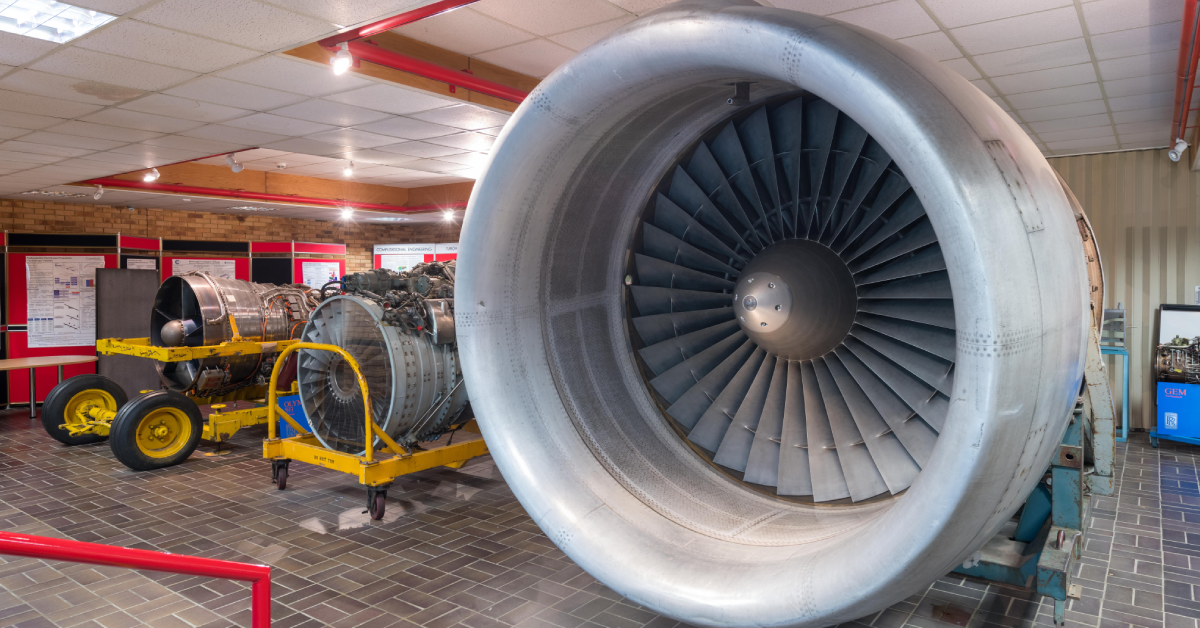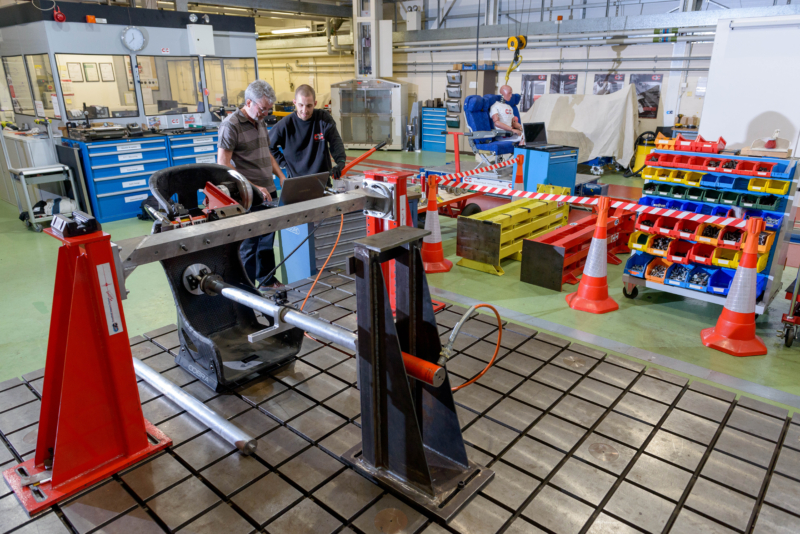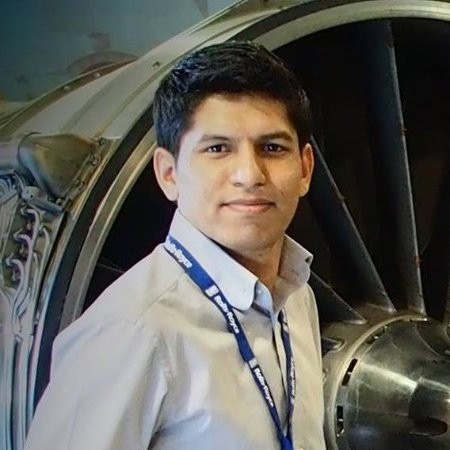Cranfield to Rolls-Royce to Cranfield and back
10/06/2022

I chose to study at Cranfield University mainly because it’s unique in terms that it’s the only postgraduate university and it has its own airfield! If you’re interested in aerospace and studying an advanced technical course, Cranfield is the place to be!
The Advanced Lightweight and Composite Structures MSc is an example of one of these advanced technical courses. You are learning about lightweight structures, mostly composite structures, and about impact analysis which is essentially crash analysis.
So let me tell you my background! I first came to Cranfield in 2010, when I studied for my Aerospace Propulsion MSc.
The aerospace sector is made up of lots of different specialisms and utilises lots of different experts from a variety of backgrounds. For example, you have structures, propulsion, avionics, and control systems, and then you can go into UAV, like autonomous vehicle design. Then there is the overall system design aspect of aircraft and spacecraft
I chose a very specific propulsion aspect of aerospace, which focused on engines. It is all about aircraft engines, rocket engines or space propulsion. The course was very focused rather than a generic aerospace engineering MSc. As a master’s student, it was important for me to specialise in a particular area and that is why I chose the Aerospace Propulsion MSc.
Fortunately for me, after graduation, I landed a role at Rolls Royce! This was a great achievement for me as they have great expertise in the area of propulsion. I have been working at Rolls Royce for the last 10 years, and continue to do so.
As my career developed over the years I moved into a focus on stress analysis within a larger design and analysis team. The course I choose to study recently at Cranfield was more focused around those elements. I was able to build on my experience in metallic structures and expand into composite structures, and how crash analysis works. So, for instance, bird strike analysis for the fan blade design of large turbofan engines.
How would you describe your experience at Cranfield?
I used to live in a bustling city so moving to Cranfield initially felt like I was living in the middle of the countryside! However, this helped me to focus on my studies. I was staying in on-campus accommodation in a sort of student bubble! Most students live on campus too which is different to studying in a city where all students can be scattered around in different parts of the city.
At Cranfield you can meet people from diverse cultures; we had a lot of kitchen parties and we all tried different cuisine! Something else unique is that you can actually fly aircraft on campus using the Cranfield airport! That’s something you cannot do anywhere else in the UK, or perhaps even in Europe!
Cranfield is a great place to communicate and meet a wide range of people from very diverse backgrounds! You can meet students who are Italian, Spanish and French as well as Chinese and Japanese. It’s a great blend of different and diverse communities on one campus! You can also get involved with a lot of societies, I joined the badminton club, Salsa dance club and also, CranSEDS. It’s a great way of socialising.
This time, I was part of the cohort that started their course, during the middle of the Covid-19 pandemic. We mostly had a blend of virtual and in-person classes. Overall, my experience has still been fairly good regardless of the impacts of the pandemic.
What did you enjoy most about your course?
The main part that I liked was the crash analysis, so we were crashing tubes and puncturing them in the lab, and that was a major experience for me. This is something unique because Cranfield University has its own very advanced facility, The motorsport cars have been tested for crash analysis at Cranfield Impact Centre (CIC). It was great to be able to use this facility during the course.

You can compress composite tubes or metallic tubes and so on, and you see the differences in how they collapse and how the structure behaves, in an impact situation. For me, that is a major highlight!
Also, on campus, there are popular jet engines and you can see their components and the actual engine itself. There aren’t many places around, you can see aircraft engines lying around, and you can see them in detail – that is pretty cool!
What advice/message would you give to anyone starting in October 2022?
My one bit of advice I can give is for the course itself. Before you start your studies brush up on your knowledge regarding solid mechanics and the strength of materials/ mechanics of materials. The course itself is slightly intense; you’re mostly busy with your assignments so make sure to prepare yourself for it. Also remember to focus some of your time on socialising, because you want to have a good student life experience. You want to balance your academic student life with your activities.
The benefits of completing the course for me are that I am in a structural analysis role and have been for the last nine years and I had done work on the metallic structures. For me, this course has been the ideal leap forward in terms of expanding my knowledge into composite structures, which is useful in airframes and lightweight structures and mainly in the area of impact analysis. The overall impact on my MSc has greatly helped me in career progression because I have now aligned my career into structure analysis or stress analysis.
Categories & Tags:
Leave a comment on this post:
You might also like…
From classroom to cockpit: What’s next after Cranfield
The Air Transport Management MSc isn’t just about learning theory — it’s about preparing for a career in the aviation industry. Adit shares his dream job, insights from classmates, and advice for prospective students. ...
Setting up a shared group folder in a reference manager
Many of our students are now busy working on their group projects. One easy way to share references amongst a group is to set up group folders in a reference manager like Mendeley or Zotero. ...
Company codes – CUSIP, SEDOL, ISIN…. What do they mean and how can you use them in our Library resources?
As you use our many finance resources, you will probably notice unique company identifiers which may be codes or symbols. It is worth spending some time getting to know what these are and which resources ...
Supporting careers in defence through specialist education
As a materials engineer by background, I have always been drawn to fields where technical expertise directly shapes real‑world outcomes. Few sectors exemplify this better than defence. Engineering careers in defence sit at the ...
What being a woman in STEM means to me
STEM is both a way of thinking and a practical toolkit. It sharpens reasoning and equips us to turn ideas into solutions with measurable impact. For me, STEM has never been only about acquiring ...
A woman’s experience in environmental science within defence
When I stepped into the gates of the Defence Academy it was the 30th September 2019. I did not know at the time that this would be the beginning of a long journey as ...







